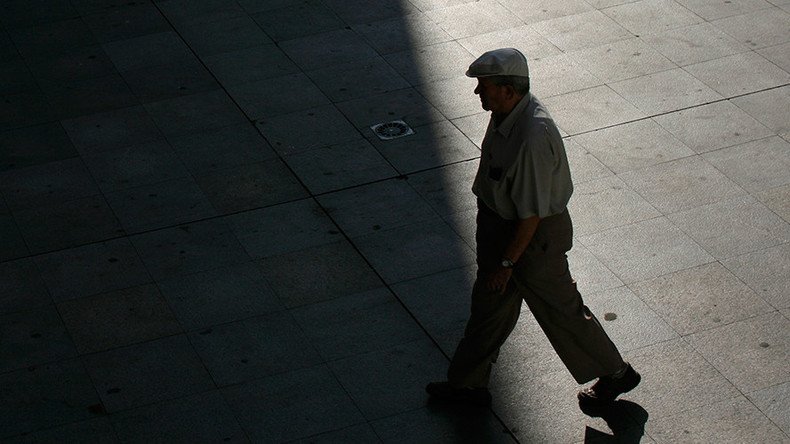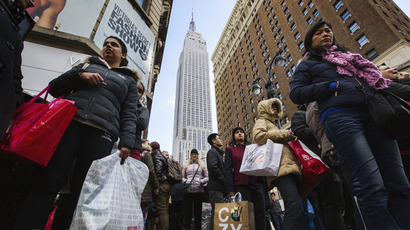Life expectancy gap between rich and poor is growing – study

While lifespans have been rising over the last 50 years, so has the life expectancy gap between the rich and the poor in the United States, a new study shows.
Lifespans have been steadily lengthening due to advances in technology and public health, but a study released last week by the Brookings Institution revealed that this advancement has been much quicker for wealthy people than for poor people.
In the US, a rich man ‒ defined as someone in the top 10 percent of income earners ‒ who was born in 1920 could expect to live about six years longer than a poor man, in the bottom 10 percent, born in the same year. By 1950, this gap more than doubled in size, as rich men born in that year lived 14 years longer than their poor counterparts.
Women, who generally live longer than men, were subject to a similar trend when looking at the same socioeconomic stratifications. The life expectancy gap between rich and poor women born in 1920 was 3.7 years, but the gap grew to 13 years by 1950.
“Rising longevity inequality has important implications for reforming Social Security. Currently, the program takes in too little money to pay for all benefits promised after 2030. A common proposal to eliminate the funding shortfall is to increase the full retirement age, currently 66. Increasing the age for full benefits by one year has the effect of lowering workers' monthly checks by 6% to 7.5%, depending on the age when a worker first claims a pension.” Gary Burtless, one of the study’s researchers, wrote in an op-ed for the Los Angeles Times.
He added that low-wage workers have not shared in the longevity improvements that contribute to Social Security’s “funding problem.”
Lower-income workers tend to claim their pensions at a younger age than higher-income workers. Because working longer and waiting to claim such benefits results in workers receiving higher payouts, tapping into Social Security earlier leads to lower monthly payments.
READ MORE: Will the rich live longer? Life expectancy gap linked to wealth, study shows
The fact that the rich live longer than the poor isn’t surprising in and of itself, since they smoke less, live in safer neighborhoods and have access to better healthcare.
However, limited access to healthcare doesn’t fully account for the gap, and obesity may be a major culprit. People who grew up poor tend to have problems with eating too much, even when they aren’t hungry, according to a study by researchers at Texas Christian University.
"Our research shows that growing up poor promotes eating in the absence of hunger in adulthood, regardless of one's wealth in adulthood," said lead researcher Sarah Hill. "These findings are important because they suggest that a person's developmental history may play a key role in their relationship with food and weight management."













